“You have to laugh not to cry,” says Lidybel Águila. The 26-year-old Puerto Rican sighs as drivers struggle to share a traffic intersection in Arecibo, a northern coastal town about 50 miles west of San Juan. The officials who were directing cars in the absence of stoplights were taking a break.
Between heartbreaking analogies — Hurricane María and the resulting humanitarian crisis has left Pueto Rico naked, she says, and the state of things on the island are now exposed to the world — Águila makes jokes. She pokes fun at the disappointing meal pack she got from FEMA between peals of laughter: It included a Capri Sun, not water, but she really did like the cookies. She adopts the same coping humor to explain her decision to leave the island; it’s a tragicomedy of sorts.
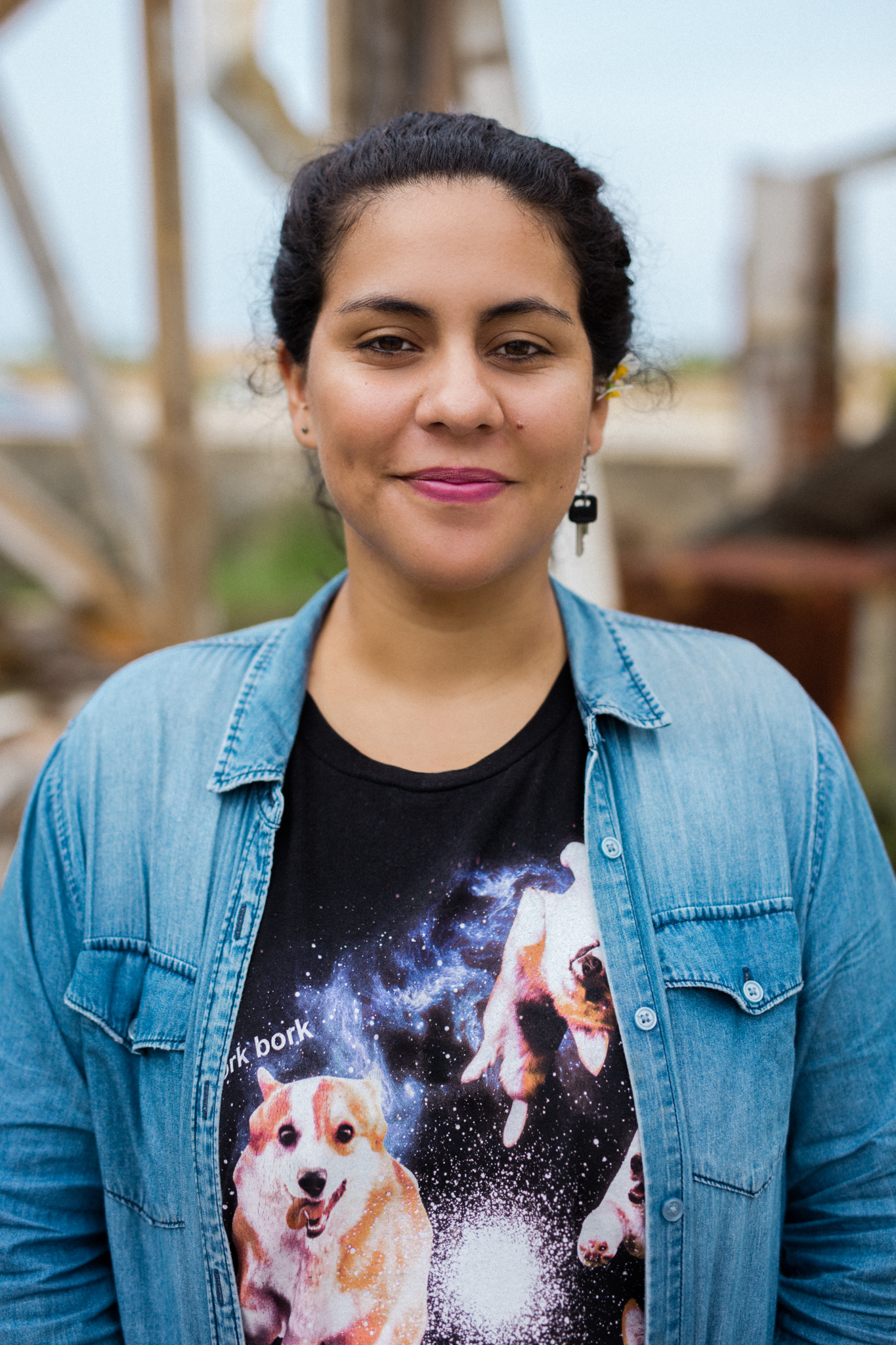
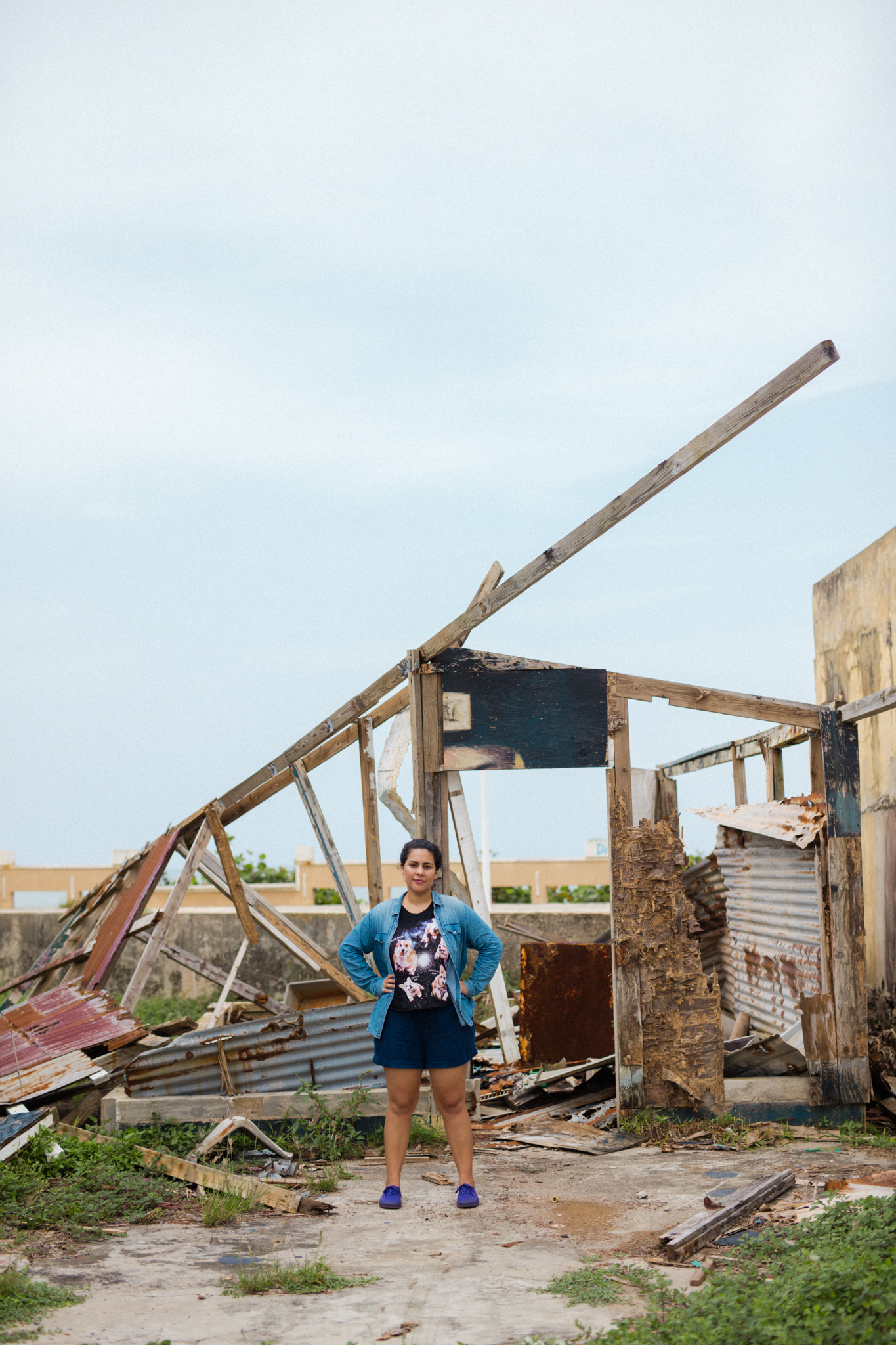
Every single one of the 470,335 Puerto Ricans who have already left or will by 2019—an estimate calculated this month by the Center for Puerto Rican Studies in New York—has their own reasons for moving away from their homeland. In just two years, the total population loss is expected to be 14 percent, equaling the percentage that left in the entire decade prior. The surge in exodus has much to do with the slow progress post-storm: One month in, Status.pr, the website through which the Puerto Rican government shares recovery statistics, reports that about 75 percent of the island is still without power, 25 percent has no water service, and only a little more than half of cell towers are functioning.
Arecibo is one of the towns affected by the negative end of the latter. Águila says she missed the opportunity for paid work as a photographer, a skill she’s expertly honed for years, because she didn’t have cell service. Even before María, however, she was considering relocating.
“How can students give 100 percent when we are facing the devastation and aftermath of María? Most of us have no jobs or have lost them; how can students pay for education?”
“Every person is a micro-mundo,” she says. “And families have their situations, and people are also running away from other things: The violence, the pressures, all of those ‘nos.’ For me, I’ve had opportunities, but I’ve also had a lot of doors closed. Just no, no, no, keep trying.”
Águila is in New Jersey now, staying with family. Rutgers University, where she got her master’s in Public Administration and Community Development, is helping facilitate her job search. Her 16-year-old sister, Anabel, is with her; she’s already enrolled in a local high school.
When Águila talks about the violence in Puerto Rico, she’s speaking from personal experience: A few months ago, one of her relatives was killed. Crime has been blamed in the past for accelerating the exodus of Puerto Ricans; it remains a serious issue, one that may be exacerbated by the likelihood that unemployment will rise in the wake of the storm. Prior to all the damage it caused, that number was 10 percent, more than twice the U.S. average, and about 44 percent of Puerto Ricans were living in poverty.
The difficulty in finding work, the crime—these are only part of why Águila is leaving. Both factors, compounded by a lack of food security and fears of an outbreak of disease, contribute to a bigger concern. Her and her sister’s leaving, she says, will be a relief for her parents, who are worried for the futures.
“People are escaping the crisis of family, too,” she says. “If things are better for us, they’re better for them, too.”
Twenty-eight year-old Franchy Cecilio’s worries, on the other hand, are primarily medical. Since the power outages caused by Hurricane Irma in early September, she’s had trouble getting her medication. A new prescription, insurance hurdles, and pharmacy closings related to the storm combined to prevent Cecilio from securing her anxiety and sleep medications. If not for a few saved-up pills, she would have had to endure the passing of María — an event that lasted about a day-and-a-half —without them.
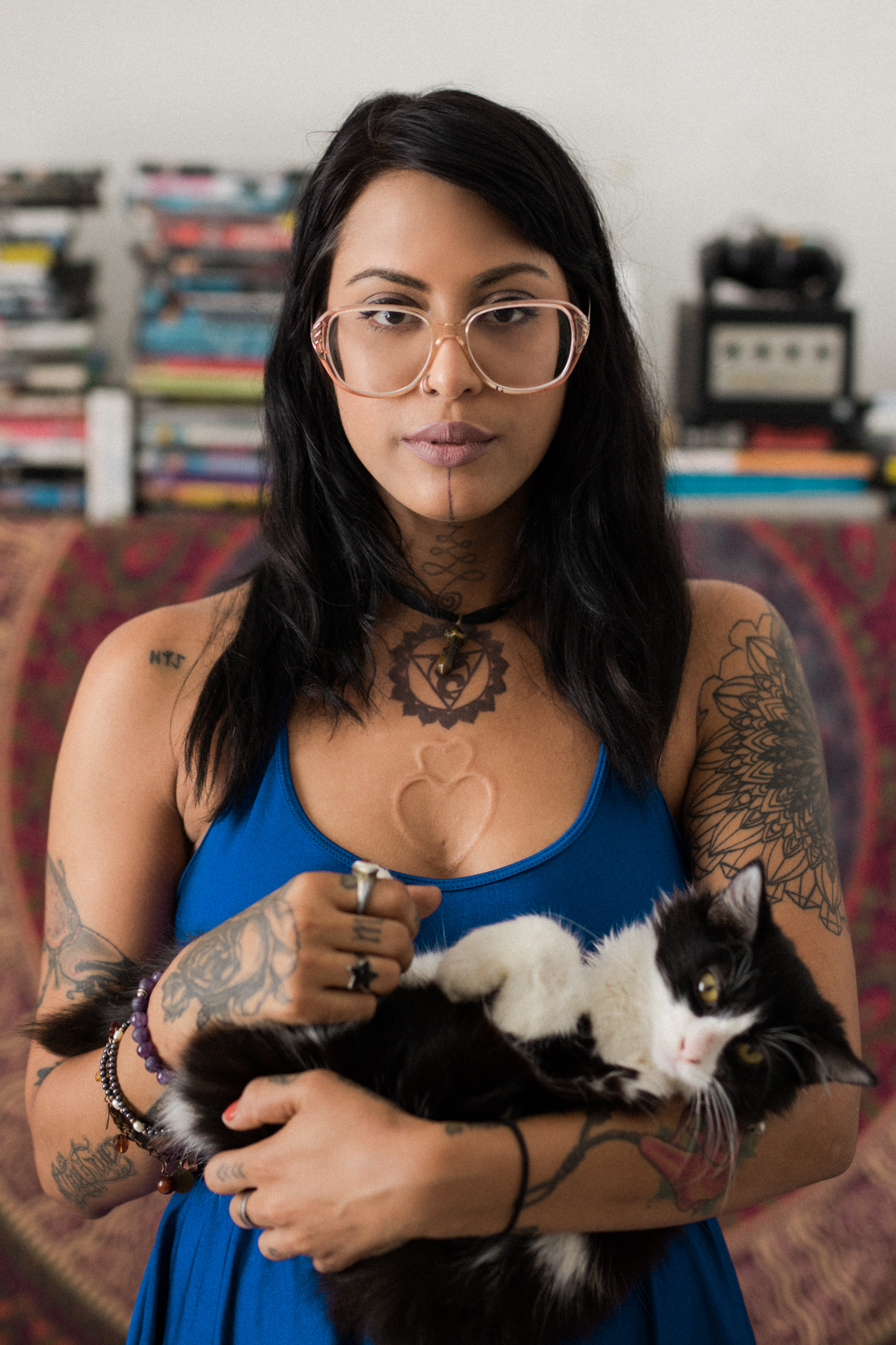
“I can’t be without my medicine,” she says. “Personally, I can do yoga, and I can meditate, and I can do things that help me because that’s my lifestyle, but I imagine there’s a lot of people that don’t have the tools and are also in the same situation as me with medicine, but without food and water. I have a friend from work whose aunt died because of a lack of electricity. People in hospitals are dying because they don’t have oxygen…I can’t afford to get sick.”
Cecilio says she hasn’t been able to work since Irma. Not wanting to leave her roommates in a precarious financial position, the disaster relief money she received through FEMA went toward unpaid rent. As she explained her situation, she began to cry.
“I feel like I’m being kicked out of my home because of reasons beyond my power. I feel impotent.”
“[My roommate] Pamela told me the other day, it’s bittersweet, right? And I’m like, it’s bitter,” she says emphatically. “It’s not sweet at all. I can accept that this is for the better…at least for the next couple of months I’ll be better than I would be staying here, but it’s bitter, because I feel like I’m being kicked out of my home because of reasons beyond my power. I feel impotent, I feel kicked out. I honestly feel kicked out. That’s not the way I want to look at it, and that’s not the way I want to feel about it, but I don’t want to leave my friends and my boyfriend, and my house and my cats, and my family.”
Today, Cecilio is just beginning to settle into a life in Portland. With the help of her grandparents, she was able to buy her flight there, where she hopes to work in the marijuana industry — she’s gotten the appropriate license — and study herbalism, and eventually, she hopes, maybe she can return to Puerto Rico with new knowledge that could help its communities.
In the meantime, she expects she’ll find herself in a position to stand up them.
“I know I’m going to be asked about it, and it’s going to be like, you came from Puerto Rico? How are things going? And I’m going to have to be the one, like, people are dying, there’s genocide happening. The media’s not telling you what it is, and I’ll have to be the one to wake people up — but I’m up for it, because that’s the least I can do,” she says.
Camila Sánchez-Longo knows well what it’s like to stand up for Puerto Rico: She was part of el Campamento Contra la Junta, the months-long organized last fall in response to PROMESA. The 24-year-old is still very much an activist in resistance —but is pursuing a move to Canada as soon as possible.
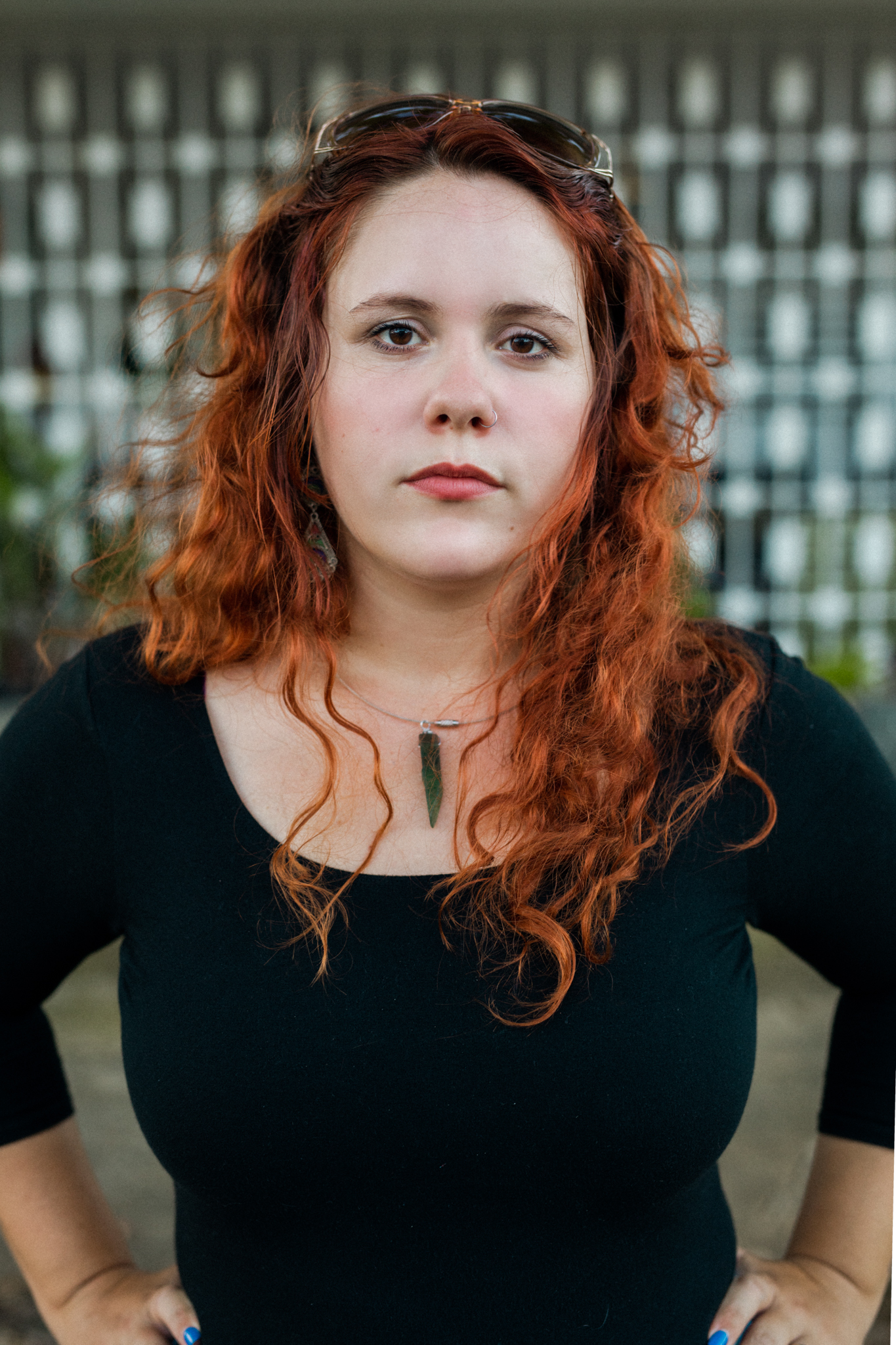
First, though, she wants to finish her bachelor’s degree at the University of Puerto Rico. Because of a 72-day student strike last spring — an action Sánchez-Longo supported — against a massive proposed budget cut, the semester was behind schedule, and the subsequent hurricanes delayed things further. Classes are now slated to begin October 30 at the flagship Río Piedras campus, and Sánchez-Longo, despite wanting to wrap up coursework quickly, is unsure about the viability of that decision.
“How can students give 100 percent when we are facing the devastation and aftermath of María? Most of us have no jobs or have lost them; how can students pay for education?” she asks.
Classes that require internet access, the treatment of students unable to attend, their ability to feed themselves, and the added mental and emotional stress of post-hurricane trauma – these are all preoccupations Sánchez-Longo has for herself and fellow students.
The original plan to head to Canada with her partner, Ibrahim López, a master’s student and also an activist, was based on returning to Puerto Rico with a master’s in art therapy.
“[I wanted to] get my master’s and come back and start working with people with art therapy and community development, because Ibrahim is also interested in community development,” she says. “So we had this whole thing that we’re leaving but we’re going to come back, because we want to use those skills to help people here, and to have a life in Puerto Rico.”
She expresses concern about the possibility of coming back, or even getting to Canada at all. Without work, affording that move could be a problem. She currently is tuition-exempt because her father is a professor at the Humacao campus, but that’s not guaranteed: “He doesn’t know if he’s going to have a job next semester,” she says.
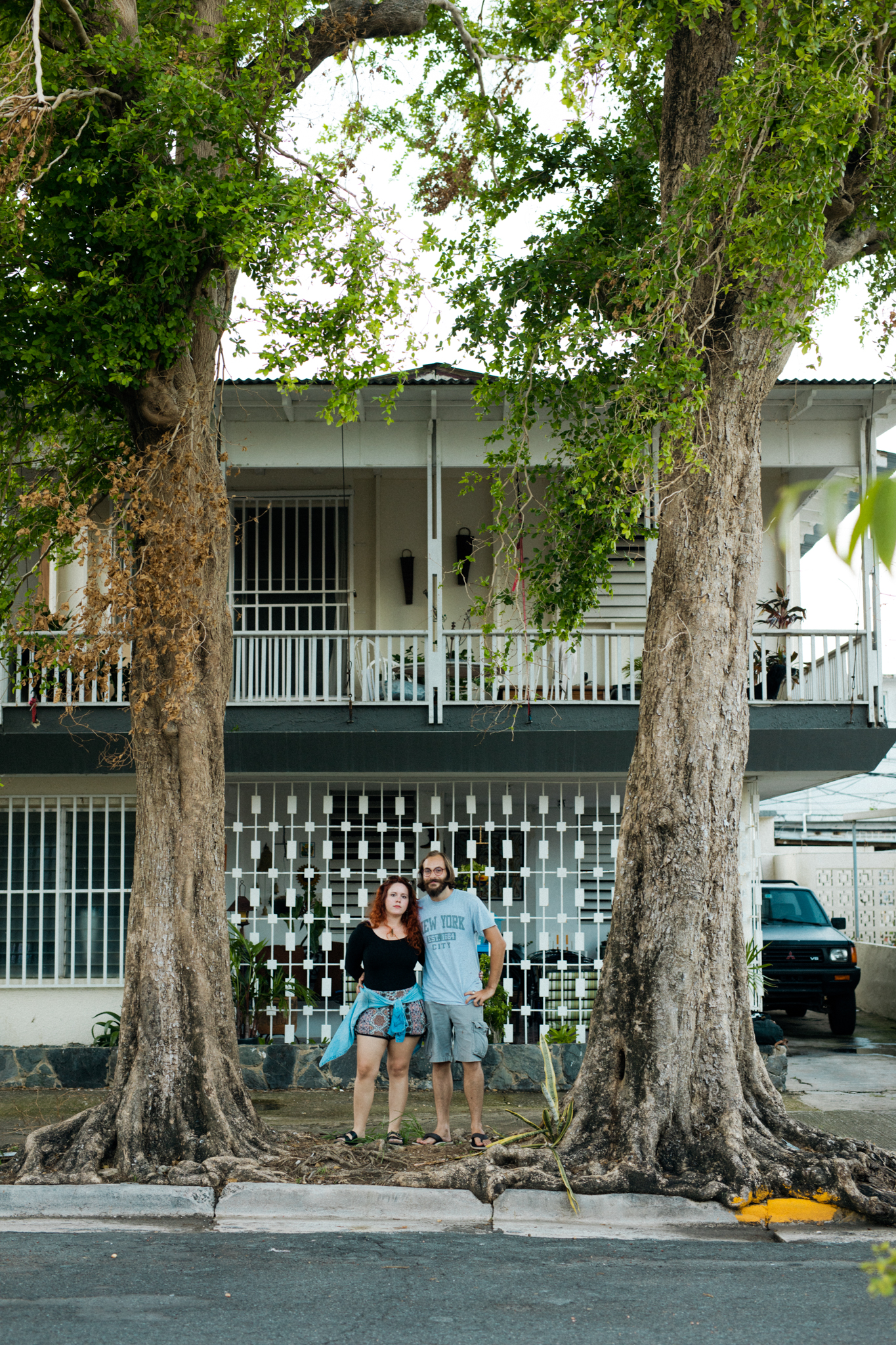
For now, she’s engaged in grassroots relief efforts with el Campamento Contra la Junta. They’re routinely bringing supplies to communities all over the island; they’re currently awaiting a 23,000-pound donation delivery from New York to be distributed immediately.
It’s not a stretch to believe those projections about the exodus, the 14 percent who by 2019 will have left Puerto Rico, to be accurate. The numbers neglect the personal inner workings, however; what’s not reflected are the myriad reasons for leaving, and the often agonizing process of choosing.
“I’m very proud to be Puerto Rican,” says Águila. “I always dreamed that if I did something here it would be like look, I did it, and I did it here, for someone here and for the people here, you understand?”
Many who decide to relocate really, truly don’t want to leave. Some feel like Cecilio: Forced out.







